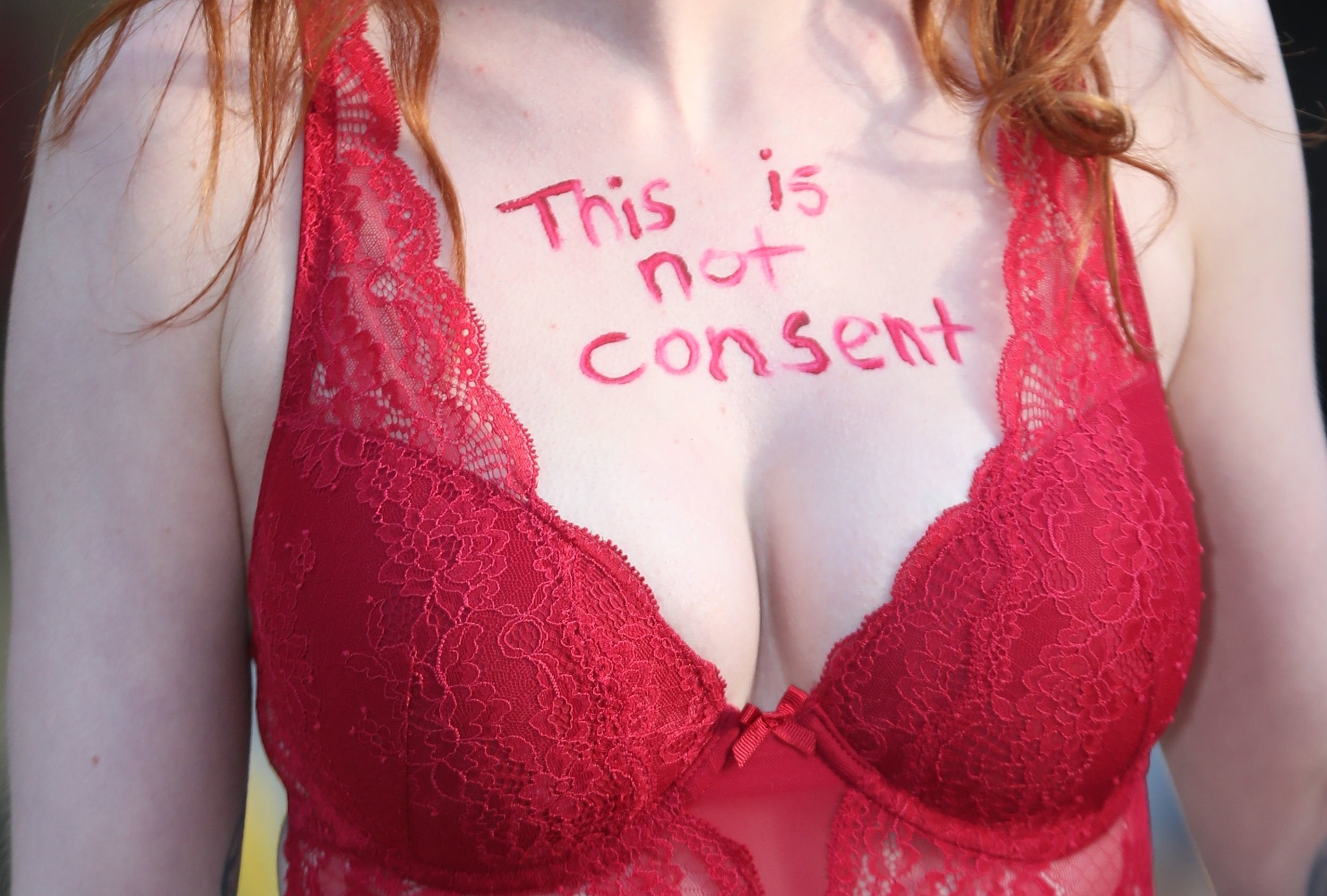How can we ask jurors to convict rapists when the latest report shows we can’t even face the truth about rape?
The misconceptions and erroneous beliefs about when forced sex does and doesn’t constitute a crime are rightly disturbing in a jury-based legal system


Your support helps us to tell the story
From reproductive rights to climate change to Big Tech, The Independent is on the ground when the story is developing. Whether it's investigating the financials of Elon Musk's pro-Trump PAC or producing our latest documentary, 'The A Word', which shines a light on the American women fighting for reproductive rights, we know how important it is to parse out the facts from the messaging.
At such a critical moment in US history, we need reporters on the ground. Your donation allows us to keep sending journalists to speak to both sides of the story.
The Independent is trusted by Americans across the entire political spectrum. And unlike many other quality news outlets, we choose not to lock Americans out of our reporting and analysis with paywalls. We believe quality journalism should be available to everyone, paid for by those who can afford it.
Your support makes all the difference.A few years ago I became entangled in a heated debate with a family friend about whether or not a man could be classed as a rapist if he forced himself on his wife. The law says he would be – it has done since 1991, when rape in marriage was criminalised – but this family friend couldn’t understand why. Sex, they believed, was implied and agreed upon as soon as the ink was dry on the marriage certificate. This person wasn’t a contrarian: they genuinely didn’t understand.
Today, the results of a major report into rape have revealed such views aren’t rare; in fact they’re extremely common. A survey of almost 4,000 people conducted by the End Violence Against Women Coalition (EVAW) revealed the public’s alarming attitudes towards consent. While 97 per cent agree it’s definitely rape when a stranger forces themselves on a woman in a park at night – the classic “violent monster in a dark alley” idea – the figure falls significantly when the perpetrator is known to the victim, the victim is drunk or asleep, or the victim was flirting with the perpetrator at any point before the attack.
More than a third of people aged over 65 didn’t believe that forced sex in long-term relationships or marriage was rape. Almost half of the same age group believed that, in most cases, if a woman changes her mind during sex but the man doesn’t stop, that doesn’t count as rape either.
Needless to say, the generational difference is stark. Comparably, just 16 per cent of 16 to 24-year-olds responded in the same way about rape within marriage.
Reported rapes are increasing yet figures from the Crown Prosecution Service revealed rape charges fell 23 per cent this year, resulting in a 12 per cent drop in convictions. If such a large proportion of the population foster such warped perceptions about rape, is it any wonder conviction numbers are so low? The EVAW Coalition is concerned about how such viewpoints could be affecting jurors’ ability to come to fair verdicts in rape trials – and it is right to be. How do we erase a lifetime of believing rape in certain circumstances isn’t rape at all?
I’ve been a juror, and can tell you how difficult it can be to be sure of someone’s guilt beyond reasonable doubt. If a jury includes people nurtured by a society that questions women’s honesty or what rape even is, they will be even more disinclined to convict. How can we convict rapists when jurors have already made their minds up?
What this survey reveals is a deep ignorance of the reality of rape. You’re far more likely to be raped by a family member or partner than by a stranger but people persistently believe the opposite. Often, when you’re raped by somebody known to you, it’s after a period of manipulation and coercion – there’s more to assault than the act itself.
We are living in a rape culture that turns a blind eye to the ‘banter’ of boys’ locker room chat, insists ‘snowflakes’ criticise ‘harmless’ sexist jokes and that women in offices must smile and relax when their boss hugs, kisses or massages them at their desk. Radio stations play songs about ‘blurred lines’ and girls who mean yes when they say no.
We have just seen Lena Dunham apologise for publishing an essay in which she wrote that her friend couldn’t possibly have raped his accuser, because she had “insider information” pertaining to his innocence. The “insider information”, Dunham admitted, never existed; it was merely a belief her friend wasn’t capable of such things.
Most of us believe our friends aren’t capable of rape but the fact is that if we position rapists as creatures of the night, boogeymen who no one would make a coffee for in the office or a share a flat with, it helps nobody. Rape victims are seen as liars in such a world, and men who seem “normal” are automatically let off the hook. In this context, it’s clear to see why the majority of victims never come forward – and why rape conviction rates remain stubbornly low. We can change this, often by the simple act of taking the time to deconstruct unacceptably persistent myths. So why don’t we?
Join our commenting forum
Join thought-provoking conversations, follow other Independent readers and see their replies
Comments